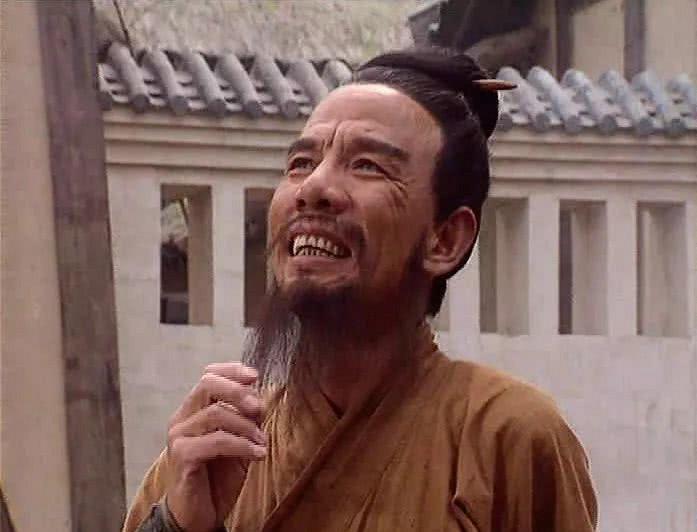Zhuge Liang only ate 3 liters of rice a day, so why did Sima Yi secretly rejoice after hearing it?
In 234, Zhuge Liang left Qishan to attack Wei again, and he led a large army out of Xiegu Dao, where he was deadlocked with Sima Yi of the State of Wei at Weinan. During this period, Zhuge Liang repeatedly sent emissaries to write war books, and even sent ornaments to women with scarves to anger Sima Yi, but Sima Yi responded to changes with no change, insisted on not hanging high and did not hang the exemption card, and at the same time adopted the clever strategy of "thousands of miles to ask for war" to calm the anger of the generals.
In the end, Zhuge Liang had no choice but to confront the Wei army at Wuzhangyuan. During this period, Zhuge Liang sent envoys to Sima Yi's army, and Sima Yi asked the emissary how much Zhuge Liang slept, ate, and did not inquire about the military situation, and the emissary replied: "Zhuge Gong got up early and went to bed late, and all punishments of more than twenty rods were personally read; Less than 3 litres of food were eaten. After hearing this, Sima Yi was secretly overjoyed and said to his cronies: "Zhuge Kongming eats little and his affairs are troublesome, how long can he live!" ”
The Book of Jin and the Chronicle of Emperor Xuan records: "First, when Liang envoyed, the emperor asked, 'How is Zhuge Gong living?' How much (xu) rice can you eat? "Three or four liters." The second time he asked about political affairs, he said: "Twenty penalties have been examined by themselves." 'The emperor then told the people: 'Zhuge Kong knows that his ability is long!'" According to the "Biography of Zhuge Liang" in volume 35 of the "Chronicle of the Three Kingdoms of Pei's Notes", when Zhuge Liang was seriously ill, he ate only three liters of rice every day, and Sima Yi, the commander of the Wei army, was overjoyed when he heard the news, and asserted that "he will die."

At that time, one liter of The Han Dynasty was equivalent to 200 milliliters now, and the weights and measures of the Shu Han during the Three Kingdoms period should have followed the Han Dynasty standards, while a liter of Cao Wei was equivalent to about 204 milliliters in modern times. In fact, the difference between these 4 milliliters is basically negligible, and it can be considered that one liter in the Three Kingdoms period is basically equal to one liter in the Han Dynasty, both of which are 200 milliliters. According to Wu Chengluo's "History of Chinese Weights and Measures", Wei Jin's one liter is about 0.2023 liters today, then three liters were 0.6 liters at that time, and because each liter of rice weighed about 1.7 kilograms, 0.6 liters of rice weighed about 1.02 kilograms, that is, Zhuge Liang could eat 1 kilogram of rice a day when he was seriously ill. Compared with modern people, this amount of food cannot be considered small. But in the society at that time, there are many records of people's lives at that time, and we can know that at that time, the daily meal of an ordinary person was about five liters, and the daily meal of a soldier in combat was a full seven liters!
Book 86 of the Book of Song mentions the amount of food eaten by a certain branch during the Southern and Northern Dynasties: "There were 20,000 soldiers, and 480,000 pieces of rice were eaten." "Before the Song and Yuan Dynasties, one hundred liters, four hundred and eighty thousand, or forty-eight million liters, so much grain that twenty thousand soldiers ate in a year, an average of six to seven liters per person per day. The southern Song dynasty's measuring instrument was the same as that of the Three Kingdoms period, which was 0.2023 liters per liter, and the six to seven liters of rice was about two pounds, and the average meal of these soldiers was twice that of Zhuge Liang. Book XIX of the Book of Song also has a saying: "Fang Jin Yi di is on the other side, the foreign emperor is anxious, the soldiers eat seven liters, and forget to go to the trouble." "It shows that as far as the army is concerned, 7 liters of rations per day is a low standard.
The amount of food eaten by people during the Three Kingdoms period was also related to the special environment at that time. In that era, in that environment, they could have grains to eat, and it was very good to be able to fill their stomachs, not to mention snacks and nutritional supplements. At the same time, the ancients were generally engaged in overloaded physical labor, and the amount of food was much larger than that of our modern people. In this way, Zhuge Liang ate a pound of rice the day before his death, and each meal was about three or two, and because the food at that time was not rich, and it was on the battlefield, except for rice, he almost no longer ate anything else. Finally, in response to Sima Yi's speculation, after more than 100 days of confrontation between the Shu army and the Wei army, Zhuge Liang fell ill and died in Wuzhangyuan.
The Battle of Wuzhangyuan also became one of the events in which the Jin Dynasty boasted of the exploits of its ancestors, and the Book of Jin, Lezhixia, included the "Confession of Order": "Declare the order, respond to the heavenly opportunity." The wind and clouds move, and the dragon flies. Yu Zhuge Ge, Zhen Yong, Liang. ...... Chong Er Tai, the Scripture of Heaven. Raise the mighty and transport the divine soldiers. Liang is shocked, the world is peaceful. ”